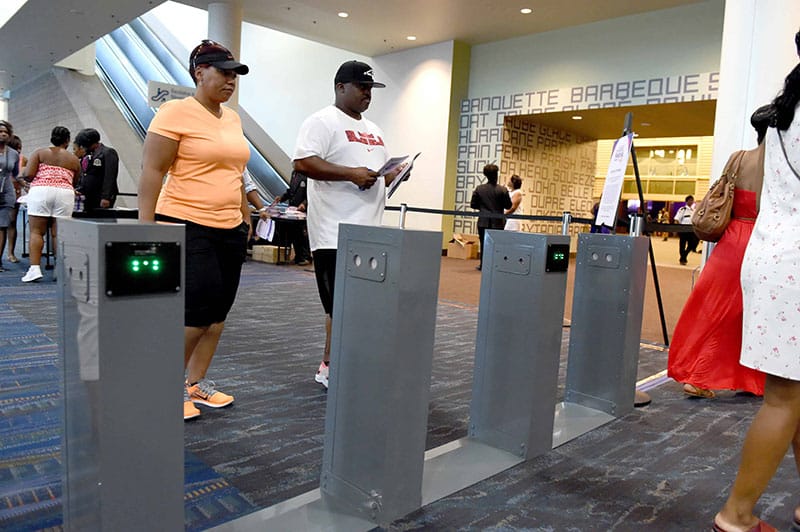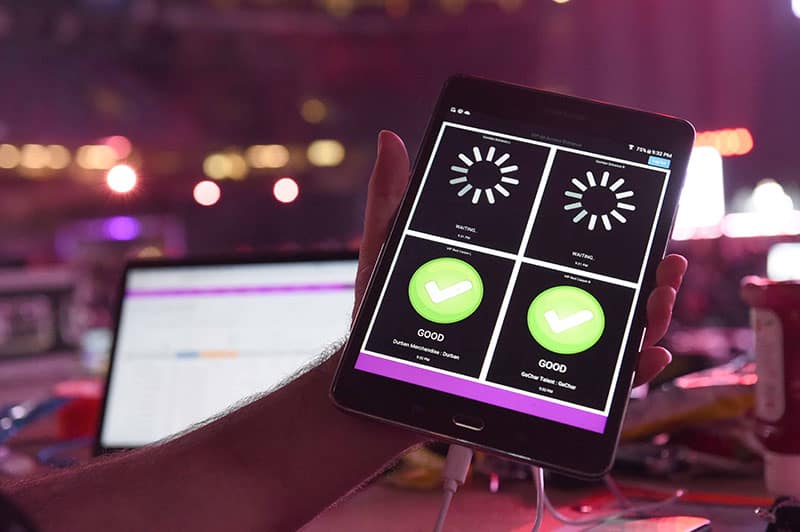How Solomon Group Built a High-Value IoT Event Management Solution
The Internet of Things (IoT) represents new and unchartered territory for businesses of all shapes and sizes. While many are quick to cite security concerns as potential roadblocks to the adoption of IoT solutions, research firm Gartner points to a lack of imagination in envisioning new applications for the technology.
Gartner writes that “The lack of a compelling business case is a major impediment to growth for enterprises… We believe that this is not so much because of a lack of a business case, rather that the [IoT] business cases have yet to be discovered.”
Businesses eager to harness IoT for new sources of competitive advantage may be wondering how to best discover compelling IoT solutions. One great source of inspiration is Solomon Group, an award-winning entertainment design and production firm that encountered a problem impacting its clients that couldn’t be solved using any other technology or means.
Tackling Event Capacity Challenges with IoT
“We came up with our first IoT solution for the Essence Festival,” recalls Solomon Group partner Jonathan Foucheaux. “We have a large daytime component of the festival which is free. The challenge was that the fire marshal wanted to shut us down after we hit the capacity of the convention center, which we do early on in the day. ”
“The issue is, people were leaving throughout the day and we wanted to be able to let additional folks in as others left, as there were long lines waiting. That left us with the challenge of finding a way to figure out what the total count was in the venue at any given moment. If 10,000 people left, we wanted to be able to let 10,000 more in but you can’t manually track that data,” he added.
 To solve this problem, Solomon’s fabrication and electronics departments put their heads together and custom built optical “turnstiles” equipped with sensors that monitor foot traffic coming both in and out of the gates. Next, the company needed a way to aggregate and make sense of all that data in real-time, to assure the fire marshal that the festival was complying with capacity requirements.
To solve this problem, Solomon’s fabrication and electronics departments put their heads together and custom built optical “turnstiles” equipped with sensors that monitor foot traffic coming both in and out of the gates. Next, the company needed a way to aggregate and make sense of all that data in real-time, to assure the fire marshal that the festival was complying with capacity requirements.
At the time, Foucheaux was using the Mendix development platform to build Solomon’s core ERP system. The platform’s ability to easily consume REST services gave him an idea. What if they could make the sensors totally autonomous, using REST calls to pull the data into a Mendix app and then visualize it in real time.
“Once we figured out the hardware piece, the app was easy to build,” notes Foucheaux.
 To date, Solomon has used its IoT solution and supporting Smart Apps at numerous events and festivals, including Essence and Coachella.
To date, Solomon has used its IoT solution and supporting Smart Apps at numerous events and festivals, including Essence and Coachella.
Solomon has also built RFID scanners for use at ancillary stages and other areas within a venue, such as big-ticket VIP lounges. Attendees simply tap their wristband on the scanner and an iPad app built in Mendix tells an employee whether that person is authorized to enter.
This helps to minimize counterfeit tickets, and the real-time attendance and foot traffic data is being used to optimize everything from staffing levels to food and beverage orders to sponsor placement.
From Idea to App to Revenue Stream
Originally, Solomon Group viewed its IoT solution as a value-add to help sell other big-ticket services. But with demand from clients growing rapidly, they’re now experimenting with how to best monetize the app.
Solomon Group is a great example of how to apply your imagination to conceive and build an IoT solution that solves real business problems. In the process, the company has been able to differentiate its services and possibly even create a new revenue stream.
As Mendix CEO Derek Roos said in his Mendix World 2016 keynote, “the technology is here; you’re only limited by your own imagination.”